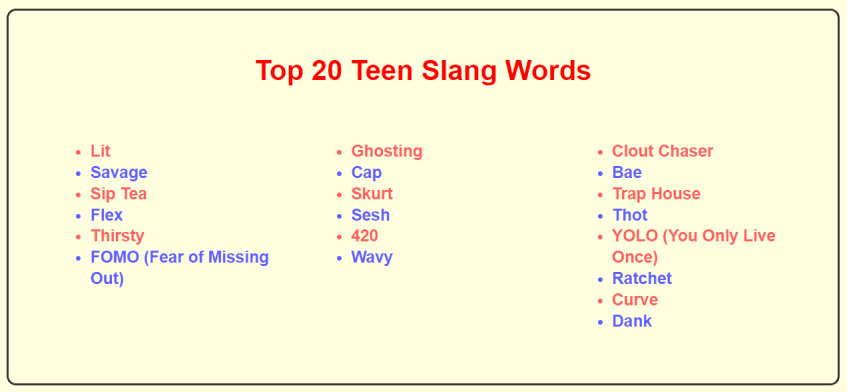BFF Meaning
BFF stands for Best Friend(s) Forever.
BFF is an internet slang initialism usually used by girls to convey that someone is a close friend.
How Is BFF Used? Use Cases & Examples
BFF is mainly used by young people in informal communication. It is a nickname used to address close friends. It’s been in use since at least 1996, although the concept of having a “best friend” predates the phrase.
Examples of how your teen might use the slang term BFF:
- Janelle and I became bffs after our families went on a vacation together.
- We were bffs in high school, but we drifted apart when we went to college.
- Linda has been my BFF since third grade.
- Dude, we’re like bffs!
How to Identify If Your Kids Are Using the BFF Slang Word
Some of the slang words that teenagers use in cell phone conversations are harmless like BFF, but not all slang words are like that. You need to pay attention to teenage slang so you can help your teens if they go astray. Here are two ways to detect the BFF slang word:
1. Check Their Phones Directly for the BFF Slang Word
Checking children’s phones directly is an easy and effective way to detect the BFF slang term. To understand what your kids have typed, you need to check their SMS, search history, chat messages, etc.
Cons:
- Affect your relationship with your kids
- Troublesome
- Can’t detect dangers timely
Pros:
- No need to install any app
2. Install A Parental Control App to Monitor the BFF Slang Word
You can maximize the protection of teens by installing a parental control app on their phones. It allows you to remotely record search history, chat messages, and text messages for slang words like BFF. You can also set BFF as a reminder word to get timely notifications.
Pros:
- More features like chat monitoring, GPS tracking, call recording, surrounding recording, etc
- Instant alerts
- Easy to install and use
Cons:
- Some apps are not free
Parental Control Apps to Detect the BFF Slang Word
Android:
- Google Family link:
It is a family parental control service from Google that helps you check search history for the BFF slang word, restrict content, set screen time, and more. - iKeyMonitor:
iKeyMonitor is one of the most powerful parental control apps. It monitors SMS, chat messages, and searched terms on kids’ phones. It will take screenshots/photos and send instant alerts to you on triggered alert words such as BFF. Besides, it will record calls, surroundings and block inappropriate apps to protect your kids from threats.
iOS:
- Apple Screen Time:
With Apple’s built-in parental control setting, you can manage app limits, set content restrictions, and more. Just unlock the iPhone or iPad, then go to Settings and tap on Screen Time. - Norton Family Parental Control:
Norton Family provides insights that help you foster a healthy online/offline balance for your children and their devices. - Kaspersky Safe Kids with GPS:
Kaspersky Safe Kids is a popular parental control app that provides web monitoring, app blocking, filtering, and more. - Alertbird Parental Control:
Alertbird is a parental control app for iOS that monitors the BFF slang term and other dangerous words. You will be notified immediately if it detects alert keywords in your searched terms and chat messages, such as the BFF slang word.
Tips to Talk With Your Kids About the Use of the BFF Slang Word
True friendship is beautiful, it enriches relationships. It’s important for your teens to use friendships to enhance their social lives. You may disapprove of some of the kids your teens hang out with. A good strategy for dealing with toxic friends is to talk about the toxic friend’s behavior. First, your kids will be better at spotting those bad behaviors for themselves. Second, if you wait until your kids become friends with someone you disapprove of, your kids will immediately become defensive about their new friends. Starting a conversation about toxic friend behavior when there are no toxic friends around ensures your kids understand that you are talking about the behavior, not a beloved new friend. Here are some ideas for coming up with the topic of toxic friends:
- Do you have friends around you who make you feel bad about yourself?
- Do you have a trusted friend who can talk about your problems and who won’t gossip with other people about what you’re going through?
- What are some strategies for dealing with old friends who suddenly develop new bad habits like shoplifting or marijuana?
- Even if the bullying reaction confirms that you’re doing the right thing, how do you deal with the consequences of ending a friendship with a classmate you see every day who didn’t let you leave it in a mature way?
